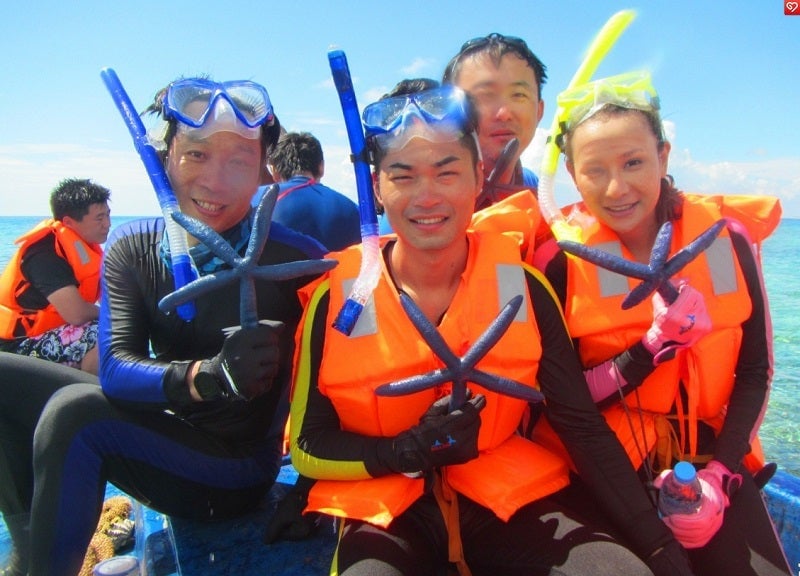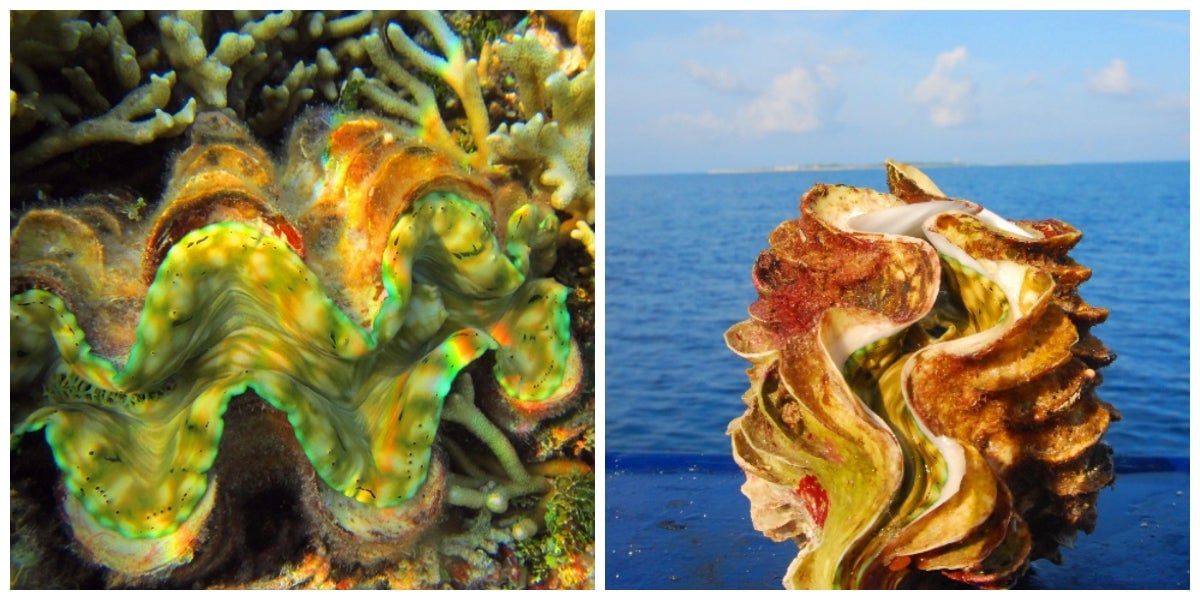Chinese snorkelers are chowing down on giant clams and other rare creatures
Both Vietnam and China claim the Paracel Islands in the South China Sea. That’s why China’s building an army garrison there. But when it comes to making a mark on the territory, China’s tourists might be more aggressive than its army.

Both Vietnam and China claim the Paracel Islands in the South China Sea. That’s why China’s building an army garrison there. But when it comes to making a mark on the territory, China’s tourists might be more aggressive than its army.
China started launching cruise tours to the islands (paywall) in April. The main activities apparently include gazing at the area’s marine life—and then manhandling and eating it. Including endangered species, reports the South China Morning Post (paywall).
This all came to light after photos of a cruise trip that one tourist posted on a bulletin-board site earlier this week stoked controversy on Sina Weibo. “It looks like Xisha will soon become the same kind of ‘dead sea’ as Yalong Bay now is,” wrote user @mable_hh (registration required). Xisha is the Chinese name for the Paracels; Yalong Bay, southeast of Hainan, has been heavily polluted by construction.
The photos, posted by someone with the username “Shadowttt,” looked like typical footage of a tropical vacation intercut with shots of tourists groping and, in many cases, frying up sea creatures. Some examples:

The narration didn’t help. ”Paracel Islands—half water, half fish,” said one caption. “Catch ’em, collect ’em, and eat ’em—ha ha ha ha.” Here’s another set of images:

And while Shadowtt said fish and sea anemones were abundant, some of the creatures on the tour group’s menu decidedly aren’t. Like this one:

“We gobbled up this giant clam,” wrote Shadowttt. “They’re best raw, and taste good with mustard and soy sauce.” That particular species of giant clam is “vulnerable” and is protected under the Convention on International Trade in Endangered Species of Wild Fauna and Flora, to which China is a party, according to the SCMP.
Weibo users were generally outraged by this. “Playing roughly with animals, sauteing them, frying them, roasting them,” wrote @mini-ying. “To flaunt your ignorance so unwittingly…I lack the energy for anger, and can only muster worry and heartache.”
Many, however, saw fault not with Shadowttt and his fellow tourists, but with the authorities. ”I think the core problem lies with the ‘relevant bureaus’ of the government. It’s those authorities that permit and encourage these ecologically destructive tourism programs—can’t they promote ecotourist concepts and habits even just a little bit?” wrote @xiaojingzi.
That’s a fair point. Protection of marine life should come from the government. But though the Chinese government hailed 2009 as “Chinese Ecotourism Year” (pdf), it has inconsistently promoted the concept.
That may be because, at this juncture in Chinese history, thinking ahead is for suckers. That means conservation often takes a backseat to economic development. Since local government officials, who ultimately enforce tourism rules (pdf), will support whatever enterprise is most lucrative, consumers must demand ecotourism first.